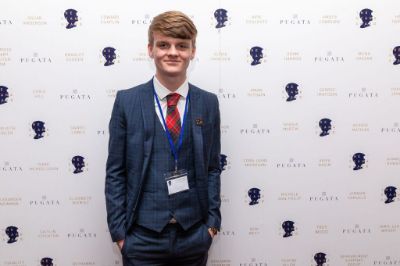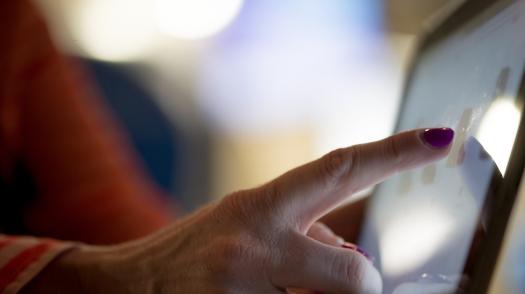
Stroke: Connor, part 2
Connor Lynes had a stroke following a rugby tackle. Since then he has worked tirelessly to raise awareness of childhood stroke and brain injury.
Connor was 14 when he had a stroke and subsequent brain injury. He has recently celebrated passing his exams at college.

Published: 28 August 2020
Recently I passed functional skills in English and Maths, which I am over the moon about! I previously failed these the past three years but I’ve been working hard and not given up. I can’t thank my college enough in supporting me.
I’m now looking forward to going back to college to complete my second year of BTEC level three in public services and hopefully in the future I would like to work in the NHS.
I wanted to write this piece to share my experience with other young people who have had a brain injury. I want them to know that there is help and support available when it comes to education, going to college and achieving your goals. And most importantly, that there is no shame in accepting help.
It took me about a year to go back to school after my brain injury. And when I did go back, it was part-time. My fatigue and health still weren’t great. But the hours that I did at school were helped me settle back.
I was given 1-to-1 support, as I was ‘high risk.’ The downside to this meant that I wasn’t in the main class with my mates, but the school supported me as best they could.
I soon realised that I had to listen to my body when it was telling me I needed to rest. I had memory and fatigue problems. If I didn’t listen to my body, I would just crash and struggle to do anything which resulted in me being in bed for days. I know now know to take time when I need it. I’m a lot better in the morning than the afternoon when I start to flag and my symptoms get worse.
Memory has been a big problem for me as I can forget simple things, like names and places. But I have come up with ways of managing this, like if I'm going to the shop, I will write a list of what I’m going to get. And I will repeat it over in my head.
It doesn’t always work as I get distracted easily but I've learnt to accept my new challenges.
When I first started college, it was a big shock! I’d only every done a few hours a day at school, so it was daunting and a bit scary. I ended up changing college last year, as I felt a little stuck. I had been studying level 2 BTEC but I wanted to challenge myself and do level 3. My new college were able to support me in undertaking this.
I have a personal assistant who keeps me on track. She makes sure I don’t go off task. I have a tendency to shout out and my behaviour has been affected from my brain injury. I hate these effects as it’s not who I am. But I am working hard and trying to control it.
Initially I didn’t accept help, such as having a personal assistant. I didn’t want to be different and thought people would judge me. But now I have, it has been one of the best decisions. It hasn’t stopped me from working hard and getting to where I want to be.
My college tutors have been so helpful and always encouraging. They don't see me as any different and treat me like they would any other student, which is what I want.
I do have an Education, Health and Care Plan (EHCP) in place which helps a lot. The college provided me with a support worker. This worker helps out a few of the students, which is great, as I don't feel like I’m the only one.
My tutors let me take the lead concerning my health. It hasn't always been plain sailing as my behaviour can be unpredictable but they understand. And they treat me as they would anyone else and are always very supportive.
I want to use my experience to help other young people. Please don’t feel embarrassed about accepting help. Now that I look back on my journey, I feel proud that I accepted support. The things in place have helped keep me focused so that I worked to the best of my ability to pass my exams.
I want to tell any young people who might be struggling at school or college, don’t give up! Talk through your worries. Things might seem extremely difficult at times and you might have to make new decisions or change your path but keep focusing on what you really want to gain. If you do get knocked down, come back stronger.
Read Connor's story of rehabilitation following his stroke.

Connor Lynes had a stroke following a rugby tackle. Since then he has worked tirelessly to raise awareness of childhood stroke and brain injury.

This section talks about a child’s return home, either from hospital or a specialist centre.
Did you know that up to one child in every classroom may have an acquired brain injury? With the prevalence of brain injury so high, you are likely to encounter brain injury at some point in your teaching career. Sign up to our free, fast-track session to help you understand ABI and use your professional teaching skills to best meet children’s needs.